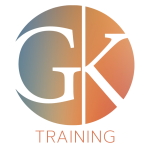
Carl Sagan: The Great Science Communicator
October 18, 2021
Good Talk: August 4th, 2022 Briefing
August 4, 2022
Communication Skills Lessons from the Open Road

By: Chiara Motley
Published: December1st 2021
Here we are, almost two years into a global pandemic, and we continue to operate in a limited and limiting space, fitting our personal and professional communication skills into small virtual spaces. We were already well on our way to communicating virtually pre-pandemic: a text or an email instead of a phone call; hopping on Microsoft Teams for a company check-in instead of an in-person meeting; unending conference calls. But now—when remote communication remains the primary option for lots of folks—it’s hard to remember that communication is, in fact, a physical art. Even when all the circumstances are stacked against us we cannot abandon the physicality that makes communication dynamic and effective.
When coaching a client, I always draw a direct parallel between communication and athleticism. Why? Because, truth be told, they should be treated the same way. An athlete views their body as a vessel, an instrument; it needs to be nurtured, fed, and cared for. A runner would never embark on a 5k race without substantial training and a proper warm up. And yet, in professional situations, no matter how high the stakes, people often skip all those preliminary steps necessary to help them succeed. They don’t practice their presentation or pitch out loud, they don’t warm up, and they fail to think critically about their larger goals and how to best accomplish them.
So, what can we learn from athletes? How can we invest in our respective profession as much as an athlete invests in theirs? I’ve rounded up seven golden rules that runners live by and offer this radical idea: When it comes to communication, you should live by these rules too. If you want to get that pay bump or promotion, if you need your idea taken seriously, or if you simply want to perform better in the workplace, follow this communication training plan.
1. Running is simple. So is communication.
It doesn’t require a bunch of fancy equipment. Just dedication and practice.Which leads directly to:
2. You have to practice to get better.
You can’t simply think about running a marathon and then lace up your shoes and run it. That would have some pretty dire consequences. The key is consistent practice. The same applies to improving your communication skills: You can (and should) practice in frequent, small, and focused bites. Trying to do all the training at once doesn’t work. But getting into the habit of doing a little bit every day will activate your muscle memory. You can rewire your neurological pathways with stronger habits.
3. Warm up.
The athlete’s physical warm-up dilates the blood vessels, stretches and loosens the muscles, and prepares them for the work ahead. This keeps fatigue and burnout at bay while also improving performance. The same things can be said for communication. Warm up before any speaking engagement, to give your body a chance to prime itself for the work ahead. Not sure how to start? You can find a variety of physical and vocal warm ups on our website here. Check them out and then commit to doing one a day. Want to go further? Try the Weekday Warm-up Playlist on our YouTube channel.
4. Vary your workouts.
If you do the same routine day in and day out, your body will start to lose some of the important benefits of running. The same goes for communication. Yes, in the beginning, you may need a specific routine to keep you accountable. But once you’ve established the habit of practicing, it’s beneficial to mix it up. Try a new tongue twister or physical warm-up before you present. Keep yourself engaged, interested, and improving.
5. Have fun.
Who are the best communicators in the world? Children. Think about it: When we are young we use all of ourselves to communicate how we feel, and to get what we want. This used to be fun, it should be fun, and it can still be fun. Use all of yourself when you communicate. Do not confuse being authentic with being small.
6. Clear your mind and focus on the open road.
Like most of us, you probably have a million things going on in your mind at any given moment. It is important, however, to speak with clarity and purpose. When you speak clearly this increases your positive influence on your audience. Clarity is contagious. Conversely, if your ideas spill out in long run on sentences, you will confuse your audience and most likely yourself. Confusion is contagious as well. Before you speak, take a breath, think about what you want to say, and then focus on one thought at a time.
In the past two years, we have seen people adopt a host of new hobbies—everything from baking bread to (you guessed it) running! Why not adopt communication as your new hobby? What better time to take the limiting factors in your life and make them the precise motivation to adopt a growth mindset and get better.





